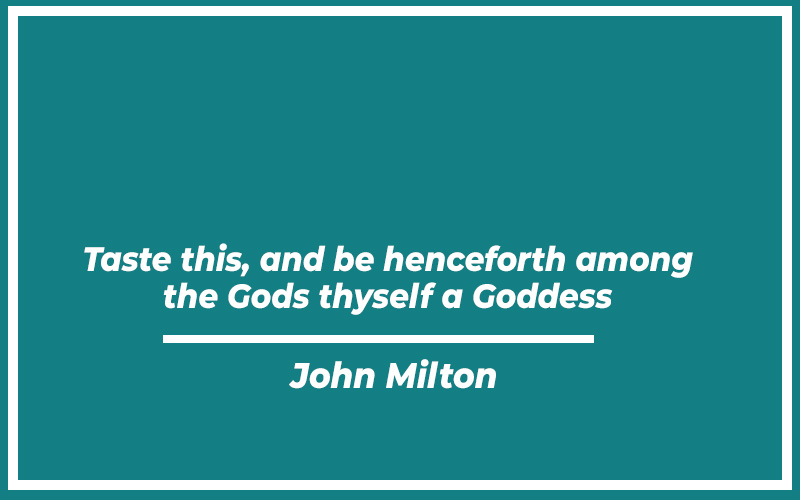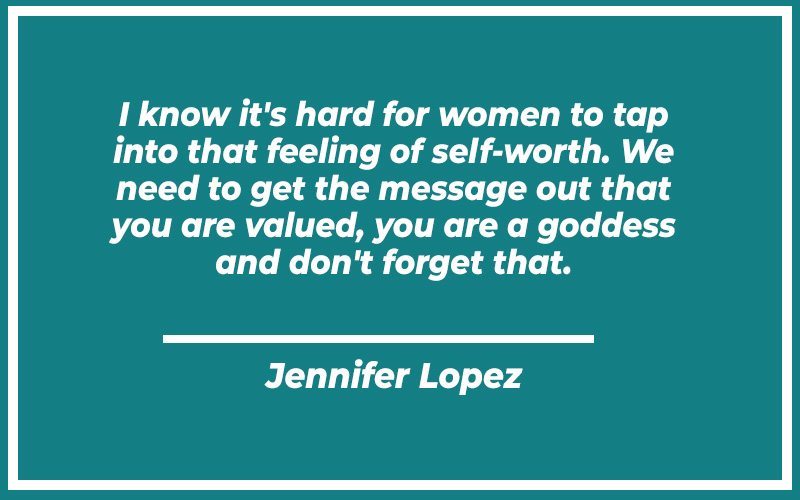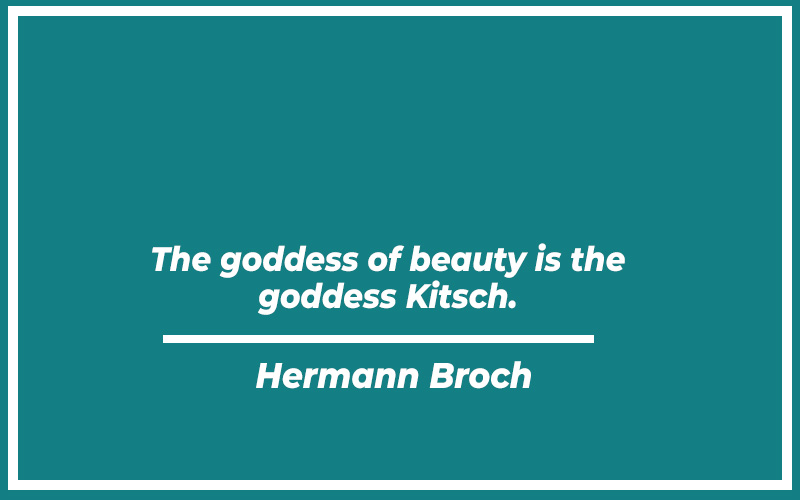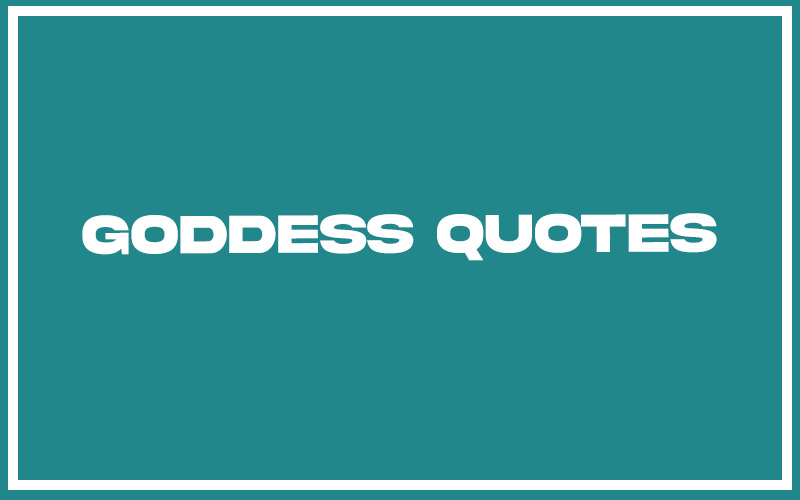Goddess quotes are special sayings that shine a light on the power and beauty of women.
They might talk about real-world strength and confidence, or they could bring to life tales of mythical women from old stories.
These quotes are great for giving you a boost, making you think, or challenging old ideas about women’s roles. They remind you to value our unique qualities and the strength we carry within you.
Best Goddess Quotes

“Taste this, and be henceforth among the Gods thyself a Goddess.” – John Milton
John Milton’s quote from “Paradise Lost” encapsulates the transformative power attributed to divine entities. When one tastes the proverbial ‘ambrosia’ of the gods, they transcend humanity, ascending to divine status.
This line isn’t just about literal taste but symbolizes acquiring knowledge or experience that elevates one’s understanding or stature, much like the gods of classical mythology who possessed knowledge beyond mortal reach.
Also read: Life is Precious Quotes (with Explanation)
“In the end, Goddess is just a word. It simply means the divine in female form.” – Sue Monk Kidd
Sue Monk Kidd reflects on the essence of what it means to be a goddess, simplifying it to the divinity represented in female form.
This statement demystifies the concept of a goddess, making it more accessible and relatable, suggesting that the divine can manifest in the everyday, celebrating female power and spirituality in a profound yet straightforward manner.
“I am the blue-lidded daughter of Sunset; I am the naked brilliance of the voluptuous night-sky.” – Aleister Crowley
Aleister Crowley’s poetic lines evoke a vivid image of a goddess-like figure, embodying the majestic and mysterious elements of the cosmos.
The “blue-lidded daughter of Sunset” suggests a guardian of the threshold between day and night, while “naked brilliance” captures the unadorned beauty and raw power of the night sky—a symbol of infinite possibility and the enigmatic allure of the universe.
“Through the Goddess, we can discover our strength, enlighten our minds, own our bodies, and celebrate our emotions.” – Starhawk
Starhawk emphasizes the empowering aspect of the goddess archetype, suggesting that through her, individuals can achieve a comprehensive sense of personal power and enlightenment.
This quote speaks to the holistic approach of goddess spirituality, which includes intellectual, physical, and emotional empowerment, encouraging an integrated and celebratory view of self.
“You think I’m not a goddess? Try me. This is a torch song. Touch me and you’ll burn.” – Margaret Atwood
Margaret Atwood combines defiance and challenge in her depiction of a goddess-like persona. The phrase “torch song” traditionally refers to expressions of unrequited love, but here it suggests a fiery, dangerous quality to the goddess, warning that those who underestimate her will get burned.
This illustrates the powerful and untouchable nature of a woman fully in command of her identity.

“I know it’s hard for women to tap into that feeling of self-worth. We need to get the message out that you are valued, you are a goddess and don’t forget that.” – Jennifer Lopez
Jennifer Lopez’s quote is a call to recognition and empowerment, emphasizing the importance of self-worth among women.
She uses the term “goddess” to elevate the listener’s sense of self, reinforcing the idea that every woman possesses inherent value and divine qualities that should be recognized and celebrated.
“The Goddess does not rule the world; She is the world. Manifest in each of us, She can be known internally by every individual, in all her magnificent diversity.” – Starhawk
Starhawk’s perspective redefines the concept of a goddess from a ruler to an omnipresent essence that embodies the world itself.
This quote speaks to the immanence of the divine in everyday life, suggesting that the goddess is a universal presence within all, reflecting a diverse range of experiences and identities, and is accessible internally through personal discovery and reflection.
“Venus favors the bold.” – Ovid
Ovid’s timeless aphorism, “Venus favors the bold,” celebrates the audacity of those who dare to seek love or beauty. Venus, the Roman goddess of love, symbolizes allure and affection, and her favoring the bold suggests that those who act with courage and confidence are more likely to succeed in love and life.
This quote inspires individuals to take bold steps, advocating that risk and initiative are often rewarded, especially in pursuits of the heart.
“The simplest and most basic meaning of the symbol of the Goddess is the acknowledgment of the legitimacy of female power as a beneficent and independent power.” – Carol P. Christ
Carol P. Christ articulates the essence of the goddess symbol as an affirmation of female power, emphasizing its positive and autonomous nature.
This perspective challenges historical narratives that have often depicted female power as either malevolent or derivative of male authority, advocating instead for a recognition of feminine strength as inherently valuable and self-sufficient.
“No one can make you feel inferior without your consent.” – Eleanor Roosevelt
Eleanor Roosevelt’s famous quote encapsulates the concept of self-sovereignty over personal emotions and self-esteem. It serves as a reminder that one’s sense of worth should not be contingent upon the opinions of others but should come from within.
The goddess-like empowerment in her words encourages individuals to maintain control over their self-perception and to reject any external attempts to diminish their value.
“I just want to be happy.” – Kate Perry
In her simplistic yet profound declaration, Kate Perry captures a universal desire that resonates deeply with the human experience—happiness.
Her statement, devoid of grandiosity, brings to light the innate goddess-like quality within everyone to aspire for joy and fulfillment, emphasizing happiness as a fundamental pursuit that drives many of life’s decisions and paths.
“Love is powerful. It can bring the gods to their knees.” – Rick Riordan
Rick Riordan’s statement on the potency of love underscores its transformative ability to affect even the divine.
This metaphorical expression illustrates how love, as a profound and universal force, can impact beings of all realms, whether mortal or mythical. It highlights the vulnerability and strength that love invokes, serving as a great equalizer across different spectrums of existence.
“The Goddess falls in love with Herself, drawing forth her own emanation, which takes on a life of its own.” – Starhawk
Starhawk discusses a self-reflective love where the Goddess’s admiration for herself creates a separate yet connected entity.
This concept of self-love and creation speaks to the power of recognizing one’s worth and the transformative impact this recognition can have. It suggests that by embracing our own divinity, we can generate profound changes in our lives and environments.
“The hero, whether god or goddess, man or woman, the figure in a myth or the dreamer of a dream discovers and assimilates his opposite (his own unsuspected self) either by swallowing it or by being swallowed.” – Joseph Campbell
Joseph Campbell explores the theme of self-discovery in mythology, where the protagonist encounters and integrates their unknown aspects. This narrative journey symbolizes the inner battles individuals face in reconciling different parts of their psyche.
The goddess or god in the story represents a metaphor for embracing the full spectrum of one’s identity, highlighting the transformative power of self-awareness and acceptance in personal growth

“The goddess of beauty is the goddess Kitsch.” – Hermann Broch
This statement challenges traditional aesthetics and values by suggesting that what is commonly dismissed as lowbrow or tacky can also possess its own form of beauty. Broch’s comparison invites us to reconsider our definitions of artistic merit and beauty, acknowledging the subjective nature of what we deem beautiful or worthy of reverence.
Hermann Broch provocatively equates the goddess of beauty with the concept of kitsch, a term often used disparagingly to describe art that is considered overly sentimental or commercial.
“Gods and goddesses are not what people think they are. Their names are terms with which we try to convey a certain experience, a state of consciousness.” – Frederick Lenz
Frederick Lenz demystifies the concept of deities, presenting them not as literal beings but as symbolic representations of various states of consciousness and human experiences.
This perspective encourages a deeper understanding of mythology and spirituality, suggesting that the divine can be accessed and understood through personal insight and reflection, rather than through external worship or dogma.
“Luck is a goddess not to be coerced and forcibly wooed by those who seek her favours. From such masterful spirits she turns away.” – P.G. Wodehouse
P.G. Wodehouse personifies luck as a capricious goddess who cannot be forced into granting favors. This quote humorously advises that luck, much like a divine entity, prefers to come willingly rather than being pursued aggressively.
It suggests a life approach of humility and patience, where one is better off trusting in the natural course of events rather than trying to control or manipulate outcomes forcefully.
“Love Goddess in training. It could happen.” – Judy Tenuta
Judy Tenuta’s light-hearted declaration playfully positions herself as an apprentice in the arts of love, suggesting that becoming a ‘Love Goddess’ is a potential yet amusing aspiration.
This quote embodies a whimsical and optimistic view of love, implying that with the right attitude and effort, anyone can master the complexities of affection and allure.
“The greatest pleasures of love are inseparable from its greatest pains: Love has the face of a goddess, but the talons of a lion.” – Ivan Panin
Ivan Panin offers a poignant observation on the dual nature of love, highlighting its ability to bring immense joy and profound pain.
Describing love with the divine beauty of a goddess and the ferocity of a lion’s talons illustrates the powerful, sometimes dangerous, impact love can have on our lives. This quote serves as a reminder of the raw and wild aspects of love, which can both enchant and wound.
“The present moment is a powerful goddess.” – Johann Wolfgang von Goethe
Johann Wolfgang von Goethe venerates the present moment as a divine force, emphasizing its power and significance.
This quote invites us to pay homage to the present, suggesting that mindfulness and living in the moment can be a profound, almost spiritual experience. It encourages an appreciation for the now, advocating for a presence of mind that honors the current time as sacred and influential.
“The hero, whether god or goddess, man or woman, the figure in a myth or the dreamer of a dream discovers and assimilates his opposite (his own unsuspected self) either by swallowing it or by being swallowed.” – Joseph Campbell
Joseph Campbell delves into the journey of the mythological hero, who must confront and integrate their shadow self—the unknown or rejected parts of their identity. This process is depicted as a transformative encounter where the hero either absorbs or is absorbed by their opposite, leading to self-discovery and wholeness.
Campbell’s interpretation of mythological narratives highlights the psychological depth of these stories, reflecting on the universal quest for personal integration and understanding.
“A queen keeps a court that is spoken about. A goddess keeps a court that is never forgotten.” – Nalini Singh
Nalini Singh draws a distinction between queens and goddesses, emphasizing the enduring influence and memory associated with the latter.
This quote celebrates the timeless and transcendent nature of a goddess, suggesting that her presence and impact are so profound that they leave an indelible mark on history and the hearts of those who revere her.
“My inner goddess is doing the dance of the seven veils.” – E.L. James
E.L. James uses the metaphor of a dance—an ancient ritual of seduction and revelation—to describe a personal journey of uncovering and embracing one’s deeper desires and hidden self.
This quote symbolizes the process of self-discovery and the joyous liberation that comes from aligning with one’s true essence, portrayed here as an ‘inner goddess’ celebrating her power and mystique.
“For me the Goddess is the female of God, she is powerful if different.” – Tina Turner
Tina Turner expresses a view of the divine feminine as equally potent yet distinct from the masculine aspect of the divine.
Her perspective acknowledges the goddess as a powerful entity in her own right, celebrating the unique qualities that the feminine divine brings to spiritual and worldly realms.
“I’m tired of watching as men destroy all the world. Everything used to be beautiful when women were in charge, and now I, working as the physical manifestation of the goddess Isis and the reincarnation of Cleopatra, have decided to save the world.” – Roseanne Barr
Roseanne Barr delivers a bold and somewhat controversial statement, blending humor with a critique of male-dominated leadership.
She invokes the imagery of goddesses and historical female figures to underscore a return to matriarchal principles, suggesting that reclaiming this energy is essential for global healing and restoration.
“You know when I feel inwardly beautiful? When I am with my girlfriends and we are having a ‘goddess circle’.” – Jennifer Aniston
Jennifer Aniston highlights the power of feminine solidarity and ritual in cultivating inner beauty and strength.
Her mention of a ‘goddess circle’ speaks to the supportive and sacred spaces women create together, which enhance their sense of self and communal connection, fostering a shared empowerment.
“Throughout the ages, stories with certain basic themes have recurred over and over, in widely disparate cultures; emerging like the goddess Venus from the sea of our unconscious.” – Joan D. Vinge
Joan D. Vinge reflects on the universal and archetypal nature of certain narratives, likening them to the mythological birth of Venus, who rose fully formed from the sea.
This comparison suggests that these recurring themes are vital to our collective psyche, serving as a bridge between the conscious and the unconscious realms.
“I don’t really want to be a goddess, or a diva or whatever I’m called. I just want to fulfil my responsibilities.” – Rekha
Rekha, an esteemed actress, expresses a desire to be recognized for her work and commitment rather than the lofty titles often bestowed upon celebrities.
Her statement sheds light on the personal integrity and dedication she prioritizes over fame, underscoring a more grounded and realistic perspective on her public image and professional ethos.
Also read: Hockey Quotes (with Explanation)
Final Thoughts
Goddess quotes are all about celebrating women’s strength and beauty. They can inspire you to believe in yourself, or tell stories about powerful female figures from myths.
These quotes can make you think, cheer you up, and even challenge the usual ideas about who gets to be powerful. In short, they show you how great it can be to embrace who you are inside.

